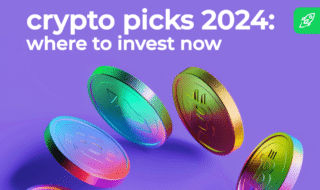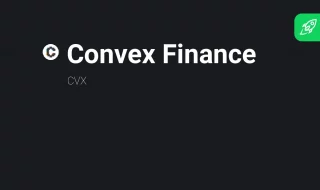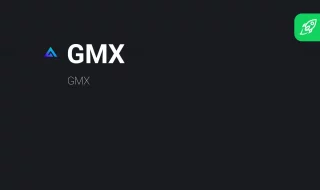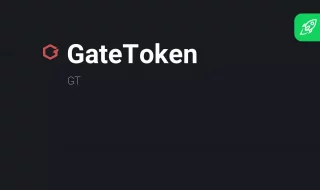No matter if it’s a crypto bull or bear market, there’s always profit to be made. Although Bitcoin is always there, many investors naturally look for alternatives, too – but with so many options to choose from, it can be challenging to find the best altcoins to buy that will offer the highest potential returns. To help you navigate this exciting market, we’ve compiled a list of the top 10 altcoins worth considering. We’ll also explore what makes altcoins different and the pros and cons of investing in them.
Table of Contents
- Top 10 Best Altcoins
- Ethereum (ETH)
- Binance Coin (BNB)
- Cardano (ADA)
- Polkadot (DOT)
- Solana (SOL)
- Toncoin (TON)
- Dogecoin (DOGE)
- Chainlink (LINK)
- Uniswap (UNI)
- Monero (XMR)
- What are Altcoins?
- Types of Altcoins
- Are Altcoins a Good Investment?
- The Pros and Cons of Investing in Altcoins
- Pros
- Cons
- FAQ: Investing in Altcoins
- Should I invest in altcoins?
- Is it better to buy Bitcoin or altcoins?
- What are the most promising altcoins?
Top 10 Best Altcoins
Here is our list of the 10 best altcoins to buy (in no particular order).
Ethereum (ETH)

Ethereum, created by Vitalik Buterin, is the second-largest cryptocurrency by market cap. It is widely regarded as the leading platform for decentralized applications (dApps). With the recent Ethereum 2.0 upgrade, the Ethereum network has transitioned to a proof-of-stake (PoS) consensus mechanism, which will continue to improve the project’s scalability, security, and energy efficiency in the long run. Ethereum’s strong developer community and ecosystem make it a top choice for investors looking to diversify their portfolios.
Binance Coin (BNB)
Binance Coin is the native utility token of Binance, the world’s largest crypto exchange by trading volume, which was co-founded by Changpeng Zhao in 2017. BNB offers several use cases, including discounted trading fees on the Binance platform, participation in token sales on the Binance Launchpad, and the ability to stake BNB for passive income. Apart from being integrated into various decentralized applications (dApps), Binance Coin is the native token for the Binance Smart Chain, a fast and low-cost blockchain designed for building dApps and smart contracts.
Cardano (ADA)

Cardano is a third-generation blockchain platform that aims to address the scalability, interoperability, and sustainability issues faced by first- and second-generation blockchains like Bitcoin and Ethereum. Cardano uses a unique proof-of-stake consensus mechanism called Ouroboros, which is designed to be more energy-efficient and secure. With a strong focus on academic research and peer review, Cardano has attracted a growing community of developers and investors.
Polkadot (DOT)
Polkadot is a blockchain platform that enables the seamless communication and transfer of data between different blockchains. It aims to solve the problem of interoperability between various blockchain networks, allowing them to work together smoothly. Polkadot uses a unique consensus mechanism called Nominated Proof-of-Stake (NPoS) and introduces the concept of parachains, which are individual blockchains connected to the main Polkadot network. Polkadot’s innovative approach and potential to enable cross-chain communication make it an attractive investment.
Solana (SOL)

Solana is a high-performance blockchain platform designed for decentralized applications and crypto markets. Known for its speed and efficiency, Solana can handle thousands of transactions per second, making it a robust choice for digital assets and decentralized finance projects. The platform uses a unique consensus mechanism called Proof of History (PoH), combined with Proof of Stake (PoS), to achieve unparalleled transaction speeds and price stability. Solana’s ecosystem supports a wide range of crypto coins and security tokens, making it a versatile player in the blockchain space. Its comprehensive white paper details the technological advancements and vision for a decentralized future.
Toncoin (TON)
Toncoin is the native cryptocurrency of the TON blockchain, a platform initially developed by Telegram. TON, short for The Open Network, focuses on providing fast, secure, and scalable blockchain solutions. With an emphasis on user-friendly interfaces and seamless integration with Telegram, Toncoin is poised to drive mainstream adoption of digital assets and decentralized finance. The platform’s consensus mechanism, based on Byzantine Fault Tolerance (BFT), ensures high security and efficiency. Toncoin’s white paper outlines its mission to bring blockchain technology to billions of users, highlighting its potential impact on the crypto markets.
Dogecoin (DOGE)

Dogecoin is a popular crypto coin that started as a meme but has grown into a significant player in the digital assets space. Known for its Shiba Inu mascot, Dogecoin has a vibrant and active community that drives its widespread adoption. Initially created as a joke, Dogecoin has evolved into a legitimate cryptocurrency used for tipping, charitable donations, and even decentralized finance applications. Its blockchain operates on a Proof of Work (PoW) consensus mechanism, similar to Bitcoin. Despite its humorous origins, Dogecoin’s white paper and community-driven initiatives contribute to its price stability and growing relevance in the crypto markets.
Chainlink (LINK)
Chainlink is a decentralized oracle network that connects real-world data to smart contracts on the blockchain. Oracles are essential for smart contracts to access off-chain information, such as price data, event outcomes, or any other external data source. Chainlink’s decentralized network of oracles helps ensure the reliability and security of the data fed into smart contracts. The platform has also developed CCIP, a decentralized interoperability project that creates links between various decentralized networks and Chainlink. Thanks to this, as well as to the growing number of partnerships and integrations across various industries, Chainlink is poised to play a crucial role in the expanding world of web3 and dApps.
Uniswap (UNI)

Uniswap is a decentralized exchange (DEX) that allows users to trade cryptocurrencies directly from their wallets without a centralized intermediary. Built on the Ethereum blockchain, Uniswap uses an innovative automated market maker (AMM) system that replaces traditional order books with liquidity pools. UNI, the native governance token of the Uniswap platform, allows its holders to participate in decision-making and earn fees from the platform’s trading activity. As the popularity of decentralized exchanges grows, Uniswap and its UNI token stand to benefit.
Monero (XMR)
Monero is a privacy-focused cryptocurrency that uses advanced cryptographic techniques to ensure secure and private crypto transactions. Unlike many other cryptocurrencies with transparent blockchain ledgers, Monero transactions are obfuscated, making it difficult for third parties to trace the source, destination, or amount. Monero’s commitment to privacy and fungibility has made it a popular choice for users who value these attributes.
What are Altcoins?
An altcoin (alternative coin) is any cryptocurrency other than Bitcoin. These digital currencies are built on blockchain technology and often have different features and functions than Bitcoin, such as enhanced privacy or unique consensus mechanisms. Some altcoins serve as the foundation for decentralized applications, while others are designed for specific industries or use cases. They can facilitate transactions, enable governance solutions, underlie reward schemes, and more.
Types of Altcoins
Altcoins encompass a wide range of digital assets, each designed with specific features and functionalities. Here are some key types of altcoins and their roles within the crypto markets.
- Stablecoins: Designed to minimize market volatility, stablecoins are pegged to a stable asset, such as a fiat currency or a commodity. Popular examples include Tether (USDT) and USD Coin (USDC). These coins are favored by financial institutions for transactions and as a store of value due to their price stability.
- Utility Tokens: These tokens are used to access services within their respective blockchains. Examples include Ethereum (ETH) and Binance Coin (BNB). Utility tokens are integral to the operation of decentralized applications (DApps) and smart contracts, providing essential functionalities within the blockchain ecosystem.
- Security Tokens: Representing ownership or other rights in an underlying asset, security tokens are subject to federal securities regulations. These tokens can represent shares in a company, real estate, or other financial instruments, and are seen as a bridge between traditional financial institutions and the crypto world.
- Meme Coins: Often driven by community sentiment and social media hype, meme coins are known for their high market volatility. Dogecoin (DOGE) and Shiba Inu (SHIB) are prime examples. While initially created for fun, some meme coins have gained significant traction and market value.
- Governance Tokens: These altcoins give holders voting rights on decisions affecting the respective blockchains or projects. Examples include tokens like Uniswap (UNI). Governance tokens enable decentralized decision-making, allowing the community to influence the direction and development of projects.
- Privacy Coins: Focused on providing enhanced privacy features, these coins offer increased anonymity in transactions. Monero (XMR) and Zcash (ZEC) are popular privacy coins, employing advanced cryptographic techniques to ensure user privacy and transaction confidentiality.
Each type of altcoin plays a distinct role in the broader cryptocurrency ecosystem, catering to different needs and use cases within the financial landscape. As the market evolves, these altcoins continue to innovate and expand their functionalities, contributing to the dynamic nature of the crypto markets.
Are Altcoins a Good Investment?
When maneuvering in the world of altcoin investments, there’s a lot to unpack. I think that it’s absolutely vital to really get to know the specific altcoin you’re eyeing. What problem does it aim to solve? How robust is its technology? Who’s behind it? And what’s their game plan for the future? These are all questions that can give you a clearer picture of its potential.
Now, based on my observations, market demand and adoption are like the heartbeat of any altcoin. If there’s a buzzing community around it and it’s being widely used, chances are it might just be a good investment. And don’t forget to check out its liquidity and trading volume on exchanges. It’s all about ensuring you can hop in and out with ease.
But here’s the thing: the crypto world is a roller coaster. Prices can skyrocket, but they can also plummet. And altcoins, being the new kids on the block, can be especially volatile. They’re also navigating a world of potential regulatory changes, security threats, and stiff competition.
However, I second the experts who say that altcoins can be a goldmine. If you strike gold with the right altcoin early on, you could see growth that mirrors the success stories of Bitcoin and Ethereum. Plus, they’re a great way to diversify your crypto portfolio.
But, and it’s a big but, always tread with caution. There are some shady projects out there. I can’t stress enough how important it is to do your homework. Study the altcoin’s tokenomics, see how strong the community backing is, and get a feel for its place in the market.
Altcoins can be a tantalizing investment option. But, as with all investments, it’s all about doing your research, understanding the market, and weighing up the risks and rewards.
The Pros and Cons of Investing in Altcoins
Let’s take a look at some of the benefits and drawbacks of investing in altcoins.
Pros
- Potential for high returns. While Bitcoin is the most well-known cryptocurrency, many altcoins have experienced significant gains, sometimes even outpacing Bitcoin’s growth.
- Diversification. Investing in altcoins can help diversify your crypto portfolio, reducing your overall risk.
- Innovation. Many altcoins offer unique features and capabilities, such as serving as utility tokens for dApps. These innovations can drive significant demand and adoption, potentially leading to increased market value.
- Accessibility. As the cryptocurrency market continues to grow, more and more platforms offer support for altcoins, making it easier for investors to buy, sell, and trade them.
Cons
- Volatility. Altcoins can be highly volatile: their values are prone to experience dramatic changes in a short period. This can make them risky investments for those unprepared for potential losses.
- Lack of regulation. The crypto space is still relatively unregulated, which can leave investors vulnerable to scams and fraudulent schemes.
- Competition. With thousands of altcoins available, competition can be fierce, making it difficult to pick the crypto assets that will deliver the best returns.
- Liquidity. Some altcoins may have low trading volumes, so one may have a hard time trying to buy or sell them at desired prices.
FAQ: Investing in Altcoins
Should I invest in altcoins?
Investing in altcoins can be a strategic way to diversify your cryptocurrency portfolio, given their potential for high returns and innovation within the crypto market. Popular altcoins often exhibit different market dynamics compared to Bitcoin, offering unique opportunities based on emerging market trends. However, market analysts advise caution due to the significant market volatility associated with altcoins. It’s essential to research thoroughly and consider your risk tolerance before investing.
Is it better to buy Bitcoin or altcoins?
Deciding whether to buy Bitcoin or altcoins depends on your investment goals and risk appetite. Bitcoin, being the largest cryptocurrency by market capitalization, is often considered a more stable and established investment akin to blue-chip stocks. In contrast, altcoins can offer higher potential returns but come with increased market volatility and risk. Market analysts suggest a balanced approach, investing in both Bitcoin and a selection of promising altcoins to capitalize on the diverse opportunities in the crypto market.
What are the most promising altcoins?
Some of the most promising altcoins currently include Ethereum (ETH), Solana (SOL), and Cardano (ADA), all known for their strong technological foundations and high crypto market volume. These altcoins are recognized by market analysts for their potential to drive significant innovation and growth within the cryptocurrency sector. Evaluating market trends and the specific use cases of each altcoin can help investors identify which digital assets are likely to perform well. As always, staying informed about market dynamics is crucial for making sound investment decisions.
Disclaimer: Please note that the contents of this article are not financial or investing advice. The information provided in this article is the author’s opinion only and should not be considered as offering trading or investing recommendations. We do not make any warranties about the completeness, reliability and accuracy of this information. The cryptocurrency market suffers from high volatility and occasional arbitrary movements. Any investor, trader, or regular crypto users should research multiple viewpoints and be familiar with all local regulations before committing to an investment.









